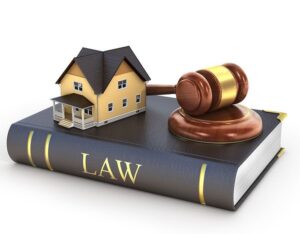Property Law
Property law is a branch of law that deals with the rights and regulations surrounding various types of property. It encompasses both real property, which includes land and anything permanently attached to it, and personal property, which consists of movable items. Property law serves as a framework to define ownership, possession, and the legal relationships between individuals and their belongings.
Types of Property
Real Property
Real property refers to land and everything permanently affixed to it, such as buildings, trees, and natural resources. Ownership of real property comes with a bundle of rights, including the right to use, sell, lease, and mortgage the property. However, these rights are subject to certain limitations imposed by laws and regulations.
Personal Property
Personal property, on the other hand, includes movable items that can be owned, but aren’t attached to the land. This category covers a wide range of items, from furniture and electronics to vehicles and jewelry. The ownership of personal property is often straightforward, but legal disputes can arise when ownership or possession is unclear.
https://www.youtube.com/watch?v=q3jSKV19MFM&pp=ygUTcHJvcGVydHkgbGF3IGluIFVTQQ%3D%3D
Ownership Rights and Limitations
Fee Simple Ownership
Fee simple ownership is the highest form of property ownership, granting the owner complete control over the property. This includes the right to sell, lease, or pass the property to heirs. However, even fee simple ownership is subject to certain restrictions, such as zoning laws and environmental regulations.
Easements and Restrictive Covenants
Easements are legal rights that allow someone to use another person’s property for a specific purpose, such as accessing a neighboring property. Restrictive covenants, on the other hand, are limitations on how a property can be used. These are often imposed by previous owners to maintain the value and character of a neighborhood. Also, read about Attorney Suspended from Practice
Transferring Property
Deeds and Title Transfers
A deed is a legal document used to transfer ownership of real property from one party to another. It includes a description of the property, the names of the parties involved, and the terms of the transfer. Title transfers ensure that the new owner has a clear and valid claim to the property.
Leases and Rental Agreements
Leases and rental agreements govern the relationship between landlords and tenants. These documents outline the terms of occupancy, rent payments, and the responsibilities of both parties. Lease agreements can vary in duration, with some being month-to-month and others lasting several years.
Property Disputes and Resolutions
Boundary Disputes
Boundary disputes arise when the exact property lines between neighboring properties are unclear. These disputes can lead to legal actions to determine accurate boundary lines, often involving surveys and legal analyses.
Adverse Possession
Adverse possession occurs when a person gains legal ownership of a property by occupying it openly and continuously for a specified period, typically several years. This doctrine is intended to prevent abandoned properties from becoming derelict.
Nuisance and Trespassing
Nuisance refers to a situation where one person’s use of their property interferes with another person’s ability to use their property. Trespassing involves entering another person’s property without permission. Legal remedies are available to address these issues and protect property rights.

Landlord-Tenant Relationships
Rights and Responsibilities of Landlords
Landlords have the right to collect rent, maintain the property’s habitability, and enforce lease agreements. They are also responsible for addressing maintenance issues promptly and respecting tenants’ privacy rights.
Rights and Responsibilities of Tenants
Tenants have the right to a safe and habitable living environment. They must pay rent on time, adhere to the terms of the lease, and report maintenance issues promptly. Tenants also have the right to privacy and peaceful enjoyment of the property.
Real Estate Contracts
Purchase Agreements
A purchase agreement outlines the terms and conditions of a real estate transaction, including the purchase price, financing details, and contingencies. This legally binding document protects both the buyer and the seller during the sale process.
Mortgage Contracts
Mortgage contracts detail the terms of a loan used to purchase real property. They specify the interest rate, repayment schedule, and consequences of default. A mortgage gives the lender a security interest in the property until the loan is repaid.
Zoning and Land Use Regulations
Zoning Laws
Zoning laws divide the land into different zones, each with specific permitted uses and restrictions. These laws ensure that land is used in a way that is consistent with the community’s overall development plan.
Variances and Special Use Permits
Property owners can seek variances or special use permits to deviate from zoning regulations. Variances allow minor deviations, while special use permits grant permission for specific uses in a zone where they are not typically allowed.

Intellectual Property
Copyrights and Trademarks
Copyrights protect original creative works, such as books, music, and art, from unauthorized reproduction or distribution. Trademarks safeguard brands, logos, and symbols that distinguish products and services in the market.
Patents and Trade Secrets
Patents grant inventors exclusive rights to their inventions for a limited period. Trade secrets, on the other hand, protect confidential business information that provides a competitive advantage.
Environmental Regulations and Property
Environmental Impact Assessments
Before certain development projects can proceed, environmental impact assessments are conducted to evaluate potential ecological consequences. This ensures that development is sustainable and minimizes harm to the environment.
Remediation of Contaminated Sites
Property owners and developers are often responsible for cleaning up contaminated sites and restoring them to a safe condition. This process involves legal and regulatory compliance to mitigate environmental risks.
Property Taxation
Assessment and Valuation of Property
Property assessments determine the value of a property for taxation purposes. Valuation methods can vary, but they often include factors like market value and property improvements.
Property Tax Payment and Appeals
Property taxes are used to fund local government services. Property owners must pay these taxes based on their property’s assessed value. If property owners believe their assessments are inaccurate, they can often appeal the assessment. Also, discover about Expert Spouse Visa Attorney
Future Trends in Property Law
Technology’s Impact on Property Transactions
Advancements in technology have revolutionized property transactions. From online property listings to digital signatures, technology streamlines the buying, selling, and leasing processes.
Sustainable Property Development
As environmental concerns grow, property development is shifting towards sustainability. Green building practices and eco-friendly designs are becoming more common to minimize the ecological footprint of real estate projects.

Conclusion
Property law is a multifaceted field that plays a crucial role in governing our interactions with the physical and intellectual assets we own. Whether you’re a property owner, a tenant, or an aspiring real estate professional, understanding property law is essential for making informed decisions and protecting your rights.
FAQs
What is the significance of property law?
Property law defines ownership rights, responsibilities, and legal relationships related to different types of property, ensuring orderly and fair interactions.
Can property ownership rights be limited?
Yes, even with fee simple ownership, there can be limitations imposed by zoning laws, environmental regulations, and other legal factors.
What is adverse possession?
Adverse possession allows someone to gain ownership of a property by occupying it openly and continuously for a specific period.
What are easements and restrictive covenants?
Easements grant specific usage rights on someone else’s property, while restrictive covenants impose limitations on property used to maintain neighborhood character.
How does technology impact property law?
Technology has streamlined property transactions through online listings, virtual tours, and digital signatures, making processes more efficient and accessible.
